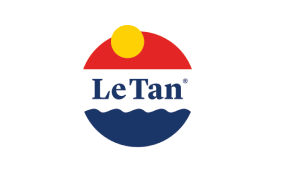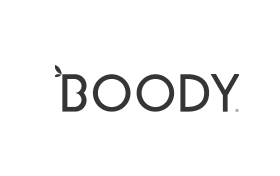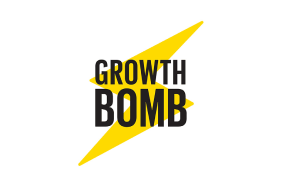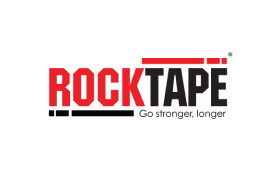The entire supply chain in Australia’s pharmacy sector relies on both distributors and wholesalers to efficiently move products. Both play critical roles in supply chain management, but their business models, responsibilities, and relationships with manufacturers and retailers differ.
Wholesalers focus primarily on buying goods in bulk quantities and reselling smaller amounts to pharmacies, wellness stores or other businesses. Their goal is to manage inventory efficiently, offer lower prices, and enable retailers to maintain customer satisfaction without holding excessive stock.
Distributors, in contrast, are more deeply involved in managing a brand’s presence, acting on behalf of the manufacturer, providing sales support, marketing strategies and compliance oversight.
In the pharmaceutical and OTC sectors, understanding the difference between a wholesaler and a distributor is crucial for establishing strong business relationships with manufacturers and retailers.
OTC Health Products: For a new pain relief cream, health distributors may have exclusive rights to supply a region and manage vendors, ensuring timely delivery. Wholesalers act as bulk purchasers, breaking shipments down into quantities suitable for local pharmacies, ensuring shelves are consistently stocked.
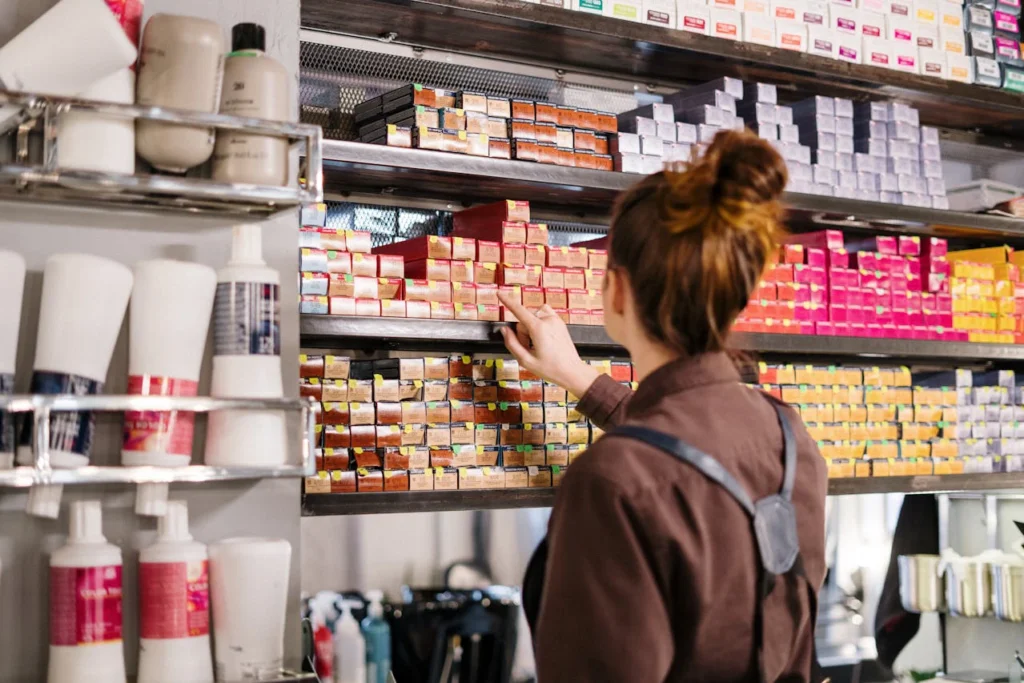
Exploring The Distribution Chain in Australia’s Pharmacy & OTC Sector
The journey of a product from concept to consumer in the pharmacy and wellness sector involves multiple stages, each with distinct roles within the distribution channel.
1. Brand & Idea Generation
A brand originates the product concept, identifying market needs, target customers, and positioning against competing products. They may define the formula, packaging and intended benefits, but often don’t manufacture the product themselves.
2. Manufacturing & Sourcing Raw Materials
The manufacturing company sources raw materials and converts them into finished goods. Distributor manufacturers may act on behalf of multiple brands, handling production, quality assurance, and compliance with regulatory standards. This ensures products are ready for market entry.
3. Distributor Acts & Provides Services
Distributors serve as the bridge between manufacturers and the broader market. They sell products on behalf of the brand, manage inventory, coordinate logistics and provide value-added services such as field sales representatives, marketing support, and product training. Distributors work closely with brands to launch new products, implement targeted promotions, and ensure product compliance. Exclusive buying agreements may enable distributors to be the sole provider of a brand within a territory.
4. Wholesalers Purchase Goods & Manage Inventory
Wholesalers buy products in bulk quantities from either manufacturers or distributors, breaking down large shipments into smaller, manageable quantities. Wholesalers sell products in smaller quantities to pharmacies, wellness stores and other retail outlets. They play a critical role in efficiently satisfying retailer demands, offering competitive pricing, managing vendors and ensuring a diverse product range is always available. Unlike distributors, wholesalers focus on high-volume transactions rather than marketing support.

5. Sales Agencies Represent Brands and Distributors
Sales agencies work on behalf of distributors or brands to execute marketing strategies, field sales, and retailer engagement, helping to convert net sales. Sales agencies typically provide sales support, market insights, and promotional services without taking ownership of the product. However, some may also act as distributors or wholesalers, managing inventory directly while providing sales support, market insights, and promotional services.
6. Retailers Sell Products Directly to Consumers
Retailers, including brick-and-mortar stores and online platforms, purchase from wholesalers (or occasionally distributors) and sell products directly to the final consumer. They set the retail price, manage customer interactions, and maintain consumer satisfaction. Retailers are the final link in the supply chain, ensuring that products are available where and when consumers need them.
7. Consumers Complete the Distribution Chain
The ultimate target of the distribution channel is the customer who completes the product journey. Brands, distributors, and wholesalers all work together to ensure the product meets consumer expectations in terms of quality, availability, and service.
By clearly mapping the flow from brand idea to final sale, companies can optimise supply chain relationships, ensure products reach the right customer entities in a timely manner, and maintain regulatory compliance throughout the process. Understanding the distinctions between wholesalers and distributors, and their respective roles, enables brands to make informed strategic decisions that drive market growth and customer satisfaction.

Wholesalers: Keeping Pharmacy Shelves Stocked
Wholesalers exist to simplify the buying process for pharmacies and wellness retailers. By purchasing large quantities from manufacturers or distributors, wholesalers can offer lower prices and more competitive pricing that smaller retailers cannot access individually.
Wholesalers typically buy goods in bulk, including OTC medicines, supplements and skincare products, then resell them in smaller quantities to pharmacies or health stores. They manage vendors, maintain stock levels and ensure retailers can meet consumer demand without holding excess inventory.
Example: A wholesaler purchases 10,000 units of a popular vitamin supplement from a manufacturer. They then distribute smaller orders, 100 or 200 units, across dozens of local pharmacies, enabling timely replenishment without burdening retailers with large upfront costs or the need for excessive storage space.
Wholesalers act as a bridge between manufacturers or distributors and retailers, providing an efficient wholesale distribution network that ensures customer satisfaction and smooth supply chain management.
Distributors: Bridging Manufacturers & Retailers
Distributors sell products on behalf of manufacturers, often under exclusive agreements. They play an essential role in supply chain management, ensuring that products comply with Australian regulations, arrive on time, and are marketed effectively.
Distributors work closely with manufacturers, often acting as their wholesale distributor in Australia. They may handle importing, registration, labelling, and marketing, providing services such as training pharmacy staff, promotional campaigns, and field sales support.
Example: A distributor for an international natural skincare brand manages all aspects of introducing the products to the Australian market. They supply both wholesalers and major pharmacy chains, oversee marketing campaigns, and train staff to advise customers on the products.
Distributors may also sell directly to other businesses, such as large wellness retailers or online platforms, thereby bridging the gap between manufacturers and retailers while maintaining brand integrity.
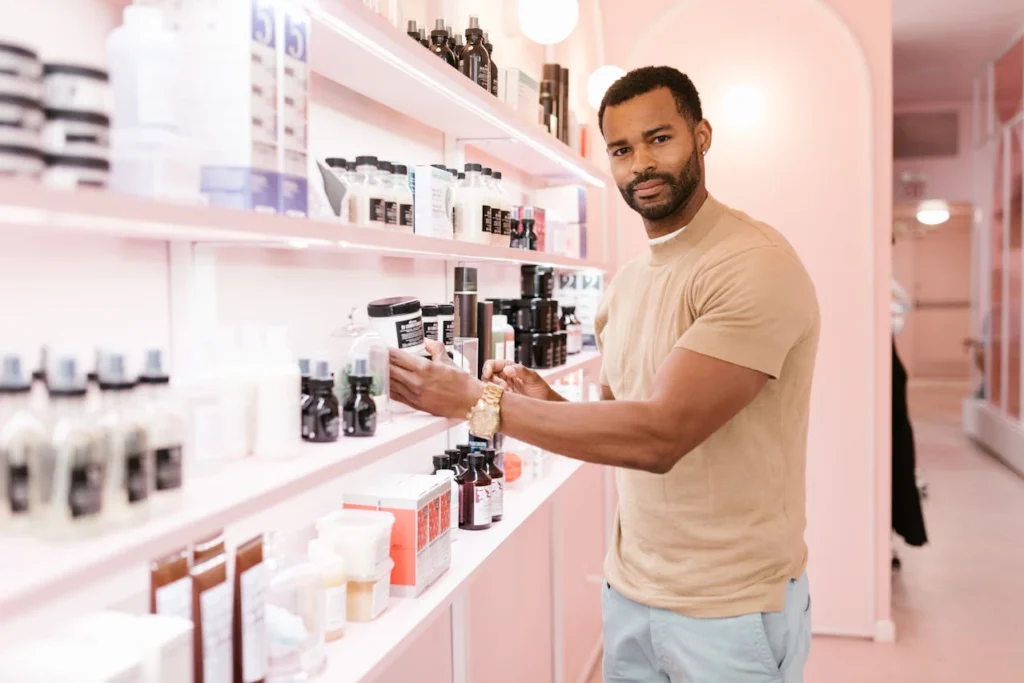
Key Differences Between Wholesalers and Distributors
Pharmacies and wellness brands must recognise the distinction between wholesalers and distributors to optimise supply chain performance:
- Wholesalers: Focus on bulk purchasing, inventory management, and resale to other businesses. They ensure pharmacies can maintain stock in a timely manner without over-investing in inventory.
- Distributors: Represent manufacturers, manage marketing, maintain regulatory compliance, and provide additional services to retailers and wholesalers.
By collaborating strategically with both, brands can maximise market coverage, sell products effectively, and ensure a consistent customer experience.
| Wholesaler | Distributor | |
| Relationship with Manufacturer | Transactional | Contractual, often exclusive |
| Services Offered | Primarily selling products | Providing services including marketing, compliance, and sales support |
| Role in Supply Chain | Reseller to retailers | Brand representative and service provider |
| Target Market | Pharmacies, health stores | Retailers, wholesalers, large chains, online platforms |
| Pricing Focus | Wholesale price | Negotiated pricing plus service fees |
| Inventory Responsibility | Maintains stock for retailers | Manages the manufacturer’s product flow |
Unlike wholesalers, distributors may have exclusive rights to sell products, provide added services, and actively manage relationships with retailers. Unlike distributors, wholesalers typically buy goods in bulk, act as resellers, and focus on efficiently moving stock to meet retailer demands.
Example: When launching a new OTC supplement, a manufacturer may rely on distributors for brand presence and regulatory compliance while using wholesalers to manage bulk distribution, ensuring timely delivery to all pharmacy chains.
Manufacturers: From Raw Materials to Finished Products
Manufacturing companies are responsible for sourcing raw materials, converting them into finished products, and ensuring compliance with quality and regulatory standards. Products may be manufactured by the brand itself or contracted out to a third party to produce a product. They work closely with distributors and wholesalers to manage inventory, coordinate distribution, and support timely delivery to retailers.
By maintaining high standards in production and working collaboratively across the supply chain, manufacturers ensure that products reach the right markets efficiently, helping retailers sell products directly to consumers while sustaining brand reputation and customer satisfaction.
Vitamin Supplements: A manufacturer produces thousands of units of a new vitamin range. A distributor imports the products, manages regulatory compliance, and works with wholesalers to distribute smaller quantities to pharmacies. Retailers sell the supplements directly to customers.
Brands: Driving the Supply Chain
Brands drive product demand and market strategy, but they may or may not align with the manufacturer. They rely on distributors and wholesalers to ensure products reach retail chains and independent stores efficiently, manage marketing, and maintain compliance with Australian regulations.
Brands guide product range, pricing, and promotions while ensuring raw materials meet quality standards. Partnering with wholesalers and distributors helps maximise net sales and meet consumer demand.
Example: An Australian vitamin brand works with a distributor for nationwide logistics, while a wholesaler delivers smaller quantities to local pharmacies.
Retailers: Selling Products Directly
Ultimately, the retailers sell products directly to the final consumer. They may source from wholesalers or distributors, and sometimes maintain exclusive buying agreements for high-demand brands. Retailers, including brick-and-mortar stores, e-commerce platforms, or healthcare clinics, form the final link in the supply chain.
Retailers focus on maintaining direct relationships with consumers, providing knowledgeable staff and product guidance. By sourcing products from trusted wholesalers or distributors, they ensure consistency in product range, availability, and consumer satisfaction.
Example: A pharmacy stocks a distributor-imported skincare brand but uses a wholesaler for daily replenishment of vitamins and OTC products, enabling staff to focus on advising customers rather than inventory management.

Sellers: Managing the Competitive Market
Wholesalers and distributors exist in a competitive ecosystem where multiple competing products may target the same consumer. Sellers, whether wholesalers themselves or retail-focused businesses, must balance net sales, pricing, and direct relationships with manufacturers or distributors.
A seller ensures that products are delivered in a timely manner to meet consumer demand, while also managing promotions, loyalty programs, or bulk deals. This focus on customer satisfaction is critical to maintaining a stable position in the distribution network.
Example: A wholesaler acts as a seller when offering a range of wellness products to smaller pharmacies, providing services such as stock forecasting and reorder support.
Sales Agencies: Enhancing Distribution
Partnering with a sales agency can elevate both distribution and wholesale operations. Agencies, like Rocket, provide entrepreneurial executives with industry insights, long-standing relationships and a hands-on approach to supply chain management.
Sales agencies can:
- Support distributors in providing services to retailers
- Facilitate the buying process for wholesalers and retailers
- Ensure products sell efficiently across channels
- Manage distribution operations, field sales, and marketing strategies
- Help maintain customer satisfaction and timely product delivery
How it works: A sales agency partners with a wellness manufacturer to coordinate distributor and wholesaler networks, offering training for retail staff, sales support, and brand promotion. This integrated approach ensures the product reaches different customer entities efficiently and profitably.
Building Smarter Partnerships Across Australia’s Pharmacy and Wellness Market
In Australia’s pharmacy and wellness sector, wholesalers and distributors play complementary but distinct roles. Wholesalers purchase goods in bulk, break them down into smaller quantities, and efficiently supply retailers. Distributors sell products on behalf of manufacturers, manage compliance, provide services, and maintain strong relationships within their supply chains.
Brands that understand these differences can build stronger business relationships, streamline supply chain management, and achieve customer satisfaction at every step of the distribution process.
Redefine Your Distribution Network for Modern Market Demands
Partner with Rocket Brands, a next-level sales agency, to optimise your distributor and wholesaler networks. Our team of experts delivers actionable insights, supply chain management solutions and sales support that ensure your brand thrives across Australia’s pharmacy and wellness channels. Contact us today to enhance your distribution strategy.




